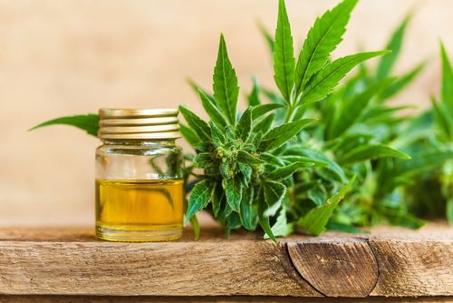Some would say it’s been a long time coming concerning the state of New Jersey and the legalization of recreational cannabis use. On November 3, 2020, New Jersey citizens voted to amend the New Jersey Constitution to legalize regulated marijuana. Many seem to be confused as to what this actually means when it comes to the law. At Roberts & Teeter, LLC, our attorneys explain the recent measure and raise questions that have yet to be answered.
“Unregulated” Marijuana Is Not Legal
For starters, the sale of “unregulated” marijuana has not been made legal, nor has it been decriminalized. What this means is, yes, you will be able to smoke and use recreational marijuana. However, you must buy it from the state of New Jersey at a regulated dispensary and pay the tax on it. The sale or possession of “unregulated” marijuana from your buddy up the street likely will be illegal, and you could face legal penalty.
How Old You Must Be to Possess Regulated Marijuana
New Jersey will require the minimum age to purchase and use marijuana to be 21 years of age. This will not go into effect until January 1, 2021, which means if you possess the substance outside of the NJ medical cannabis program, that’s illegal under the existing law.
Cases Are at the Discretion of Law Enforcement Officers and Prosecutors
Through all this, law enforcement officers and prosecutors have a tremendous amount of discretion when handling misdemeanor/disorderly persons offense marijuana possession cases. The NJ Attorney General’s Office has provided guidance to municipal court prosecutors stating that “law enforcement officers and prosecutors should exercise discretion, but cannot adopt blanket policies that decriminalize marijuana, because doing so would not only impermissibly assume a role that belongs to the Legislature, but would also undermine the framework for legalized cannabis that the electorate approved.”
For the time being, what happens in one town may not happen in another. Some prosecutors may dismiss the case (depending on the circumstance and facts). Others may offer a simple township ordinance with a small fine.
When the Attorney General provided guidance, in reality, it wasn’t much guidance at all.
When we ask prosecutors to use discretion, I believe that they will take the following factors into consideration:
- Is this person a first-time offender or a young offender?
- Were there additional criminal charges filed because of the marijuana possession?
- Were they compliant with the police officers involved?
- How much marijuana were they in possession of? Was it a joint, residue, oil pen, multiple grams?
- Is there any evidence of drug dealing/distribution (small baggies, scales, large amounts of cash, etc.)?
The above are just a few of the things prosecutors may consider.
But the real questions we want answered are:
- What happens if someone has a pending marijuana case that has not resolved and the law changes? Will the law apply retroactively?
- Will they give everyone in the state of New Jersey an expungement of any petty marijuana convictions they may have on their background?
- What if a person has been entered into a first-time offender diversion program, such as the Conditional Discharge Program, and the law has changed? Do they still need to complete the program? Do they still need to check-in with their probation officer and take drug tests? Will they be able to enter into a diversion program in the future, or will they be disqualified because they used it for an offense that would now be considered legal?
These are all questions citizens of New Jersey want responses to. But only time will tell how they will be answered. It appears that by the time the law passes through the NJ Legislature by the spring of 2021, having regulations enacted and figuring out the application-licensing process, it may be a year for all to be completed.
In the meantime, attorneys will be working around the clock to convince prosecutors to use discretion in these cases to allow their clients to leave court without the burden of a criminal conviction.
If you need an attorney to defend you in a marijuana-related case, please contact Roberts & Teeter, LLC at (732) 607-5553.

